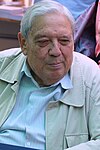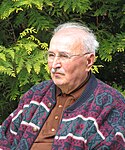
Back Eleccions legislatives hongareses de 1990 Catalan Parlamentní volby v Maďarsku 1990 Czech Parlamentsvalget i Ungarn 1990 Danish Elecciones parlamentarias de Hungría de 1990 Spanish Élections législatives hongroises de 1990 French 1990-es magyarországi országgyűlési választás Hungarian Elezioni parlamentari in Ungheria del 1990 Italian 1990年ハンガリー議会選挙 Japanese Hongaarse parlementsverkiezingen 1990 Dutch Parlamentsvalget i Ungarn 1990 NB
| |||||||||||||||||||||||||||||||||||||||||||||||||||||||||||||||||||||||||||||
All 386 seats to the Országgyűlés 194 seats needed for a majority | |||||||||||||||||||||||||||||||||||||||||||||||||||||||||||||||||||||||||||||
|---|---|---|---|---|---|---|---|---|---|---|---|---|---|---|---|---|---|---|---|---|---|---|---|---|---|---|---|---|---|---|---|---|---|---|---|---|---|---|---|---|---|---|---|---|---|---|---|---|---|---|---|---|---|---|---|---|---|---|---|---|---|---|---|---|---|---|---|---|---|---|---|---|---|---|---|---|---|
| Turnout | 65.11% (first round) 45.54% (second round) | ||||||||||||||||||||||||||||||||||||||||||||||||||||||||||||||||||||||||||||
| |||||||||||||||||||||||||||||||||||||||||||||||||||||||||||||||||||||||||||||
 Results of the election. Proportional list results are displayed in the top left. | |||||||||||||||||||||||||||||||||||||||||||||||||||||||||||||||||||||||||||||
| |||||||||||||||||||||||||||||||||||||||||||||||||||||||||||||||||||||||||||||
Parliamentary elections were held in Hungary on 25 March 1990, with a second round of voting taking place in all but five single member constituencies on 8 April.[1] They were the first completely free and competitive elections to be held in the country since 1945, and only the second completely free elections with universal suffrage in the country's history. The conservative, nationalist Hungarian Democratic Forum (MDF) beat the liberal and more internationalist Alliance of Free Democrats, which had spearheaded opposition to Communist rule in 1989, to become the largest party in parliament. The Hungarian Socialist Party, the former Communist party, suffered a crushing defeat, winning only 33 seats for fourth place.
MDF leader József Antall became prime minister in coalition with the Christian Democratic People's Party and Independent Smallholders' Party. It was the first government since the end of World War II with no Communist participation.
Cite error: There are <ref group=lower-alpha> tags or {{efn}} templates on this page, but the references will not show without a {{reflist|group=lower-alpha}} template or {{notelist}} template (see the help page).
- ^ Nohlen & Stöver 2010, pp. 899, 924.
© MMXXIII Rich X Search. We shall prevail. All rights reserved. Rich X Search





